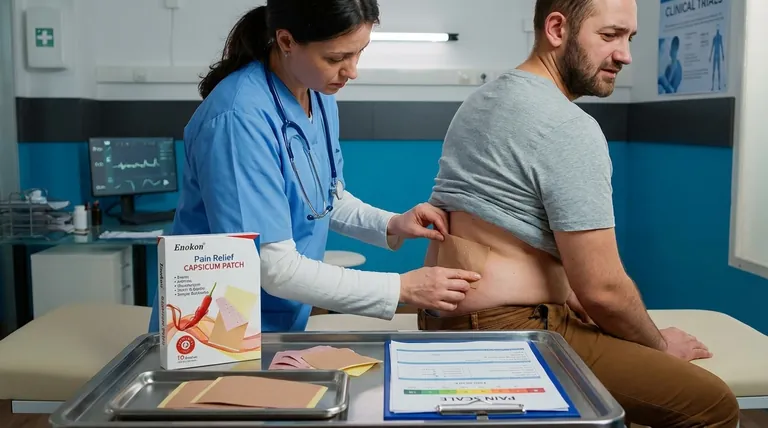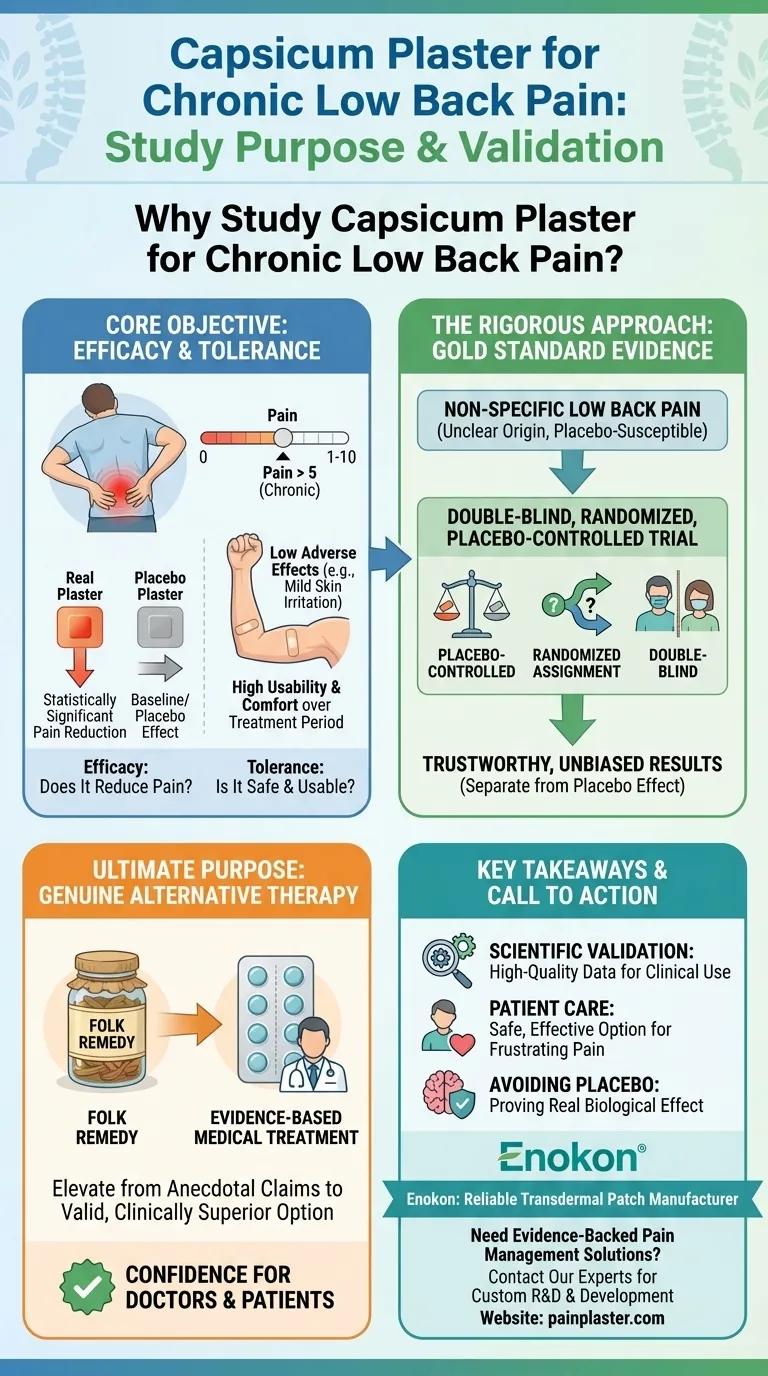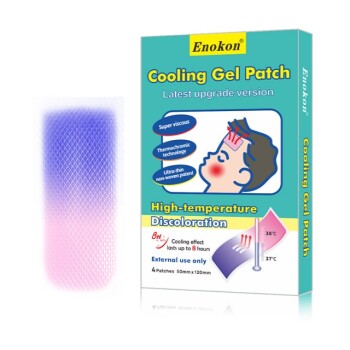The primary purpose of the study was to scientifically measure the effectiveness and safety of using a capsicum plaster to treat chronic, non-specific low back pain. Researchers needed to determine if the plaster genuinely reduced pain more than a placebo and if patients could tolerate using it without significant side effects.
The core goal was to move beyond anecdotal claims and subject the capsicum plaster to rigorous scientific testing. The study sought to establish whether this common remedy could be considered a valid, evidence-based medical treatment for a persistent and widespread type of back pain.

The Core Objective: Efficacy and Tolerance
The entire study was built around answering two fundamental questions about the capsicum plaster's performance in a real-world clinical setting.
Measuring Efficacy: Does It Reduce Pain?
The main goal was to see if the active ingredient, derived from capsicum, provided a statistically significant reduction in pain.
To do this, the study compared the results of patients using the real plaster against those using a fake (placebo) plaster.
This was tested on individuals with a documented history of back pain for at least three months and a self-reported pain level of 5 or higher on a standard scale, ensuring the focus was on chronic, meaningful pain.
Assessing Tolerance: Is It Safe and Usable?
Beyond just reducing pain, researchers needed to know if the treatment was well-tolerated.
This involves monitoring for adverse effects, such as skin irritation, and determining if patients could comfortably use the plaster as prescribed over the full treatment period. High tolerance is critical for any viable long-term therapy.
Why This Rigorous Approach Was Necessary
Simply asking people if a treatment works is not enough in medicine. The study's design was chosen specifically to eliminate bias and produce trustworthy results for a notoriously difficult condition.
The Challenge of Non-Specific Pain
Non-specific low back pain is a diagnosis given when the precise anatomical cause of the pain cannot be identified.
Because its origin is unclear, it can be highly susceptible to the placebo effect, where a patient's belief in a treatment can cause perceived improvement.
The Gold Standard of Evidence
The study employed a double-blind, randomised, placebo-controlled design to overcome these challenges.
- Placebo-Controlled: A fake plaster was used as a baseline to see if the real one performed better.
- Randomised: Patients were randomly assigned to either the real or placebo group to prevent bias.
- Double-Blind: Neither the patients nor the researchers knew who received the real plaster until the study concluded.
This high-quality design is the most reliable way to prove a treatment's true effect, separate from psychological factors.
Finding a "Genuine Alternative"
The ultimate purpose was to determine if this simple plaster could be considered a genuine alternative therapy.
By providing strong, unbiased evidence, the study aimed to give doctors and patients confidence that this was a legitimate treatment option, not just folk medicine. The positive conclusion confirmed it was clinically superior to placebo.
Key Takeaways from the Study's Purpose
Based on the study's design and stated goals, here is how to interpret its underlying purpose.
- If your primary focus is scientific validation: The purpose was to provide the high-quality, placebo-controlled data required to elevate capsicum plaster from a simple remedy to an evidence-based medical treatment.
- If your primary focus is patient care: The purpose was to confirm a safe, effective, and accessible treatment option for a frustrating and chronic condition that often has limited solutions.
- If your primary focus is avoiding the placebo effect: The purpose of the rigorous study design was to definitively prove that the plaster's pain-relieving effects were real and not just a product of patient belief.
Ultimately, the study was designed to provide a clear, definitive answer on the value of capsicum plaster for chronic low back pain.
Summary Table:
| Study Objective | Key Focus | Method Used |
|---|---|---|
| Efficacy | Measure true pain reduction vs. placebo | Double-blind, randomized, placebo-controlled trial |
| Tolerance | Assess safety and skin tolerability | Monitoring of adverse effects over treatment period |
| Validation | Provide evidence for clinical use | Rigorous testing on patients with chronic non-specific pain |
Need a reliable, evidence-backed transdermal patch for pain management?
This study highlights the importance of scientific validation for effective therapies. At Enokon, we are a bulk manufacturer of reliable transdermal patches and pain plasters for healthcare and pharma distributors and brands.
Benefit from our technical expertise for custom R&D and development to create a product that meets the highest standards of efficacy and safety.
Contact our experts today to discuss your specific needs and how we can support your product development.
Visual Guide

Related Products
- Heat Relief Capsicum Patch for Lower Back Pain Relief
- Far Infrared Knee Pain Patch Heat Patches for Pain Relief
- Capsaicin Chili Medicated Pain Relief Patches
- Natural Herbal Wormwood Patch Pain Plaster
- Lidocaine Hydrogel Pain Relief Patch for Pain Relief
People Also Ask
- What types of pain can the Deep Heat Pain Relief Back Patch be used for? Targeted Relief for Muscles & Joints
- What precautions should be taken when using the Capsicum HOT PATCH Adhesive Patch? Essential Safety Tips
- What is the Capsicum HOT PATCH Adhesive Patch used for? Relieve Pain Naturally with Capsaicin
- How quickly does the Deep Heat Pain Relief Back Patch activate and how long does it provide warmth? Get 16-Hour Relief
- How should the Capsicum HOT PATCH Adhesive Patch be stored? Best Practices for Safety & Effectiveness

















